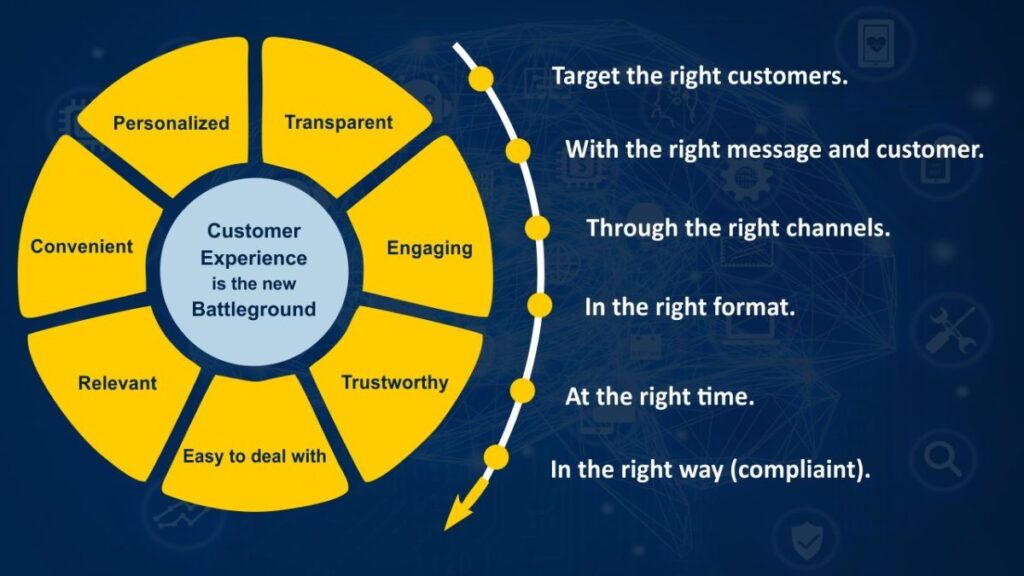In the fast-paced and highly competitive business world, companies are constantly looking for ways to differentiate themselves from their competitors and build a strong, loyal customer base. One of the most effective ways to achieve this is by providing an exceptional customer experience. The importance of customer experience in driving business success cannot be overstated, as it influences customer loyalty, brand reputation, and overall profitability. In this article, we will explore how customer experience plays a vital role in driving business success and how businesses can enhance their customer experience strategies to foster long-term growth.
Understanding Customer Experience
Customer experience (CX) refers to the overall interaction a customer has with a brand or business throughout their journey. This journey encompasses every touchpoint, from the initial awareness of the brand to post-purchase support and everything in between. Customer experience involves a wide range of factors, including product quality, ease of purchase, customer service, website usability, and even the emotional connection a customer feels towards the brand.
For a business to succeed in today’s market, it must recognize that customer experience extends beyond just offering a good product. It is about creating a seamless, personalized, and memorable experience that meets or exceeds customer expectations at every stage of the interaction. When customers have positive experiences with a brand, they are more likely to become repeat buyers, recommend the brand to others, and contribute to the company’s growth.
Customer Experience and Brand Loyalty
One of the most significant ways that customer experience drives business success is through the development of brand loyalty. Loyal customers are the backbone of a business, as they not only generate repeat sales but also help to create brand advocates who can bring in new customers. A study by Bain & Company found that increasing customer retention rates by just 5% can increase profits by as much as 25% to 95%. This illustrates the profound impact that retaining customers can have on a company’s financial performance.
When customers have positive experiences with a brand, they are more likely to return for future purchases. They develop a sense of trust and confidence in the brand, knowing that their needs and expectations will be consistently met. This trust is essential for building long-term relationships, and it makes customers more forgiving when a company makes mistakes or faces challenges. On the other hand, poor customer experiences can lead to dissatisfaction, resulting in customers seeking alternatives and abandoning the brand altogether.
Creating exceptional customer experiences is crucial for fostering this loyalty. Companies that invest in understanding their customers’ needs, preferences, and pain points are better equipped to deliver tailored experiences that resonate with their audience. This can involve personalized marketing efforts, loyalty programs, efficient customer support, and consistent product or service quality.
The Role of Customer Experience in Reputation Management
In today’s digital age, where online reviews and social media play a significant role in shaping consumer perceptions, customer experience has a direct impact on brand reputation. Positive customer experiences lead to favorable reviews, word-of-mouth recommendations, and social media praise, all of which contribute to building a solid reputation. Conversely, negative experiences can lead to bad reviews, complaints, and a damaged reputation that can be difficult to recover from.
A study by the Temkin Group found that 86% of customers are willing to pay more for a better customer experience, and 77% of customers have a more favorable view of a company if it responds quickly to customer inquiries or complaints. This demonstrates the power of customer experience in influencing not just the perception of a brand, but also its ability to generate revenue.
Businesses must actively manage their reputation by ensuring that customers consistently have positive experiences. This means monitoring customer feedback, addressing issues promptly, and being transparent in communication. Additionally, businesses should encourage satisfied customers to leave reviews and share their experiences on social media, as this can significantly enhance their reputation and attract new customers.
Customer Experience as a Competitive Advantage
In many industries, products and services have become increasingly commoditized. Consumers can often find similar offerings from multiple brands, making it difficult for businesses to differentiate themselves purely on the basis of product features or price. In such a competitive landscape, customer experience becomes a key differentiator. Companies that can provide exceptional experiences will stand out and attract customers who value service, convenience, and personalized attention.
Consider the case of companies like Apple and Amazon. While many of their products are available from other manufacturers or retailers, what sets them apart is their focus on customer experience. Apple’s intuitive product design, seamless ecosystem, and exceptional customer service have earned the company a loyal following, while Amazon’s commitment to fast delivery, easy returns, and personalized recommendations has made it the go-to online retailer for millions of consumers.
Customer experience can also provide a competitive advantage by allowing businesses to charge premium prices for their products or services. When customers feel valued and appreciated, they are often willing to pay more for the convenience and positive experience that a brand provides. This is particularly true in industries where personalization and attention to detail are highly valued, such as luxury goods, hospitality, and high-end retail.
The Financial Impact of Customer Experience
Beyond brand loyalty and reputation management, customer experience has a direct impact on a company’s bottom line. A study by the American Express Customer Service Barometer found that 60% of consumers are willing to pay more for a better customer experience. This suggests that businesses that prioritize customer experience can command higher prices and increase their revenue streams.
Moreover, exceptional customer experiences can lead to increased customer retention, which is far more cost-effective than acquiring new customers. According to the Harvard Business Review, acquiring a new customer can cost five to 25 times more than retaining an existing one. Therefore, investing in customer experience not only drives customer satisfaction but also contributes to long-term profitability by reducing customer churn.
Additionally, happy customers are more likely to spend more on each transaction. A study by the Temkin Group revealed that customers who have a positive experience with a company will spend 140% more compared to those who have a negative experience. This highlights the significant financial impact that delivering outstanding customer experiences can have on overall revenue.
Strategies for Enhancing Customer Experience
To drive business success through customer experience, companies must develop and implement effective strategies that prioritize customer needs and expectations. Below are several key strategies for enhancing customer experience:
1. Personalization
Personalized experiences are a powerful way to make customers feel valued and understood. By collecting data on customer preferences and behaviors, businesses can tailor their offerings, recommendations, and communication to meet individual needs. Personalization can range from addressing customers by name in emails to offering personalized product recommendations based on past purchases.
2. Omnichannel Consistency
Customers today interact with brands across multiple channels, including websites, social media, mobile apps, and in-store. Ensuring a consistent experience across all these channels is essential for providing a seamless journey. Businesses should invest in technologies that enable them to track customer interactions and deliver consistent messaging, regardless of the channel.
3. Efficient Customer Support
Providing timely and effective customer support is a crucial element of customer experience. Whether through phone, email, or live chat, customers should be able to quickly resolve issues and receive assistance when needed. Offering multiple support options and ensuring that customer service representatives are well-trained and knowledgeable can significantly enhance the overall experience.
4. Proactive Feedback Collection
Regularly collecting feedback from customers can help businesses identify areas for improvement and address issues before they escalate. Proactively reaching out to customers for their opinions shows that a company values their input and is committed to continuous improvement. This can be done through surveys, online reviews, or social media engagement.
Conclusion
The importance of customer experience in driving business success is undeniable. From fostering brand loyalty and enhancing reputation to providing a competitive advantage and driving financial growth, the impact of exceptional customer experience cannot be overstated. Businesses that prioritize customer experience will not only retain loyal customers but also attract new ones, ultimately positioning themselves for long-term success in an increasingly competitive market. By implementing personalized, consistent, and customer-focused strategies, businesses can create memorable experiences that lead to lasting relationships and sustained growth.






